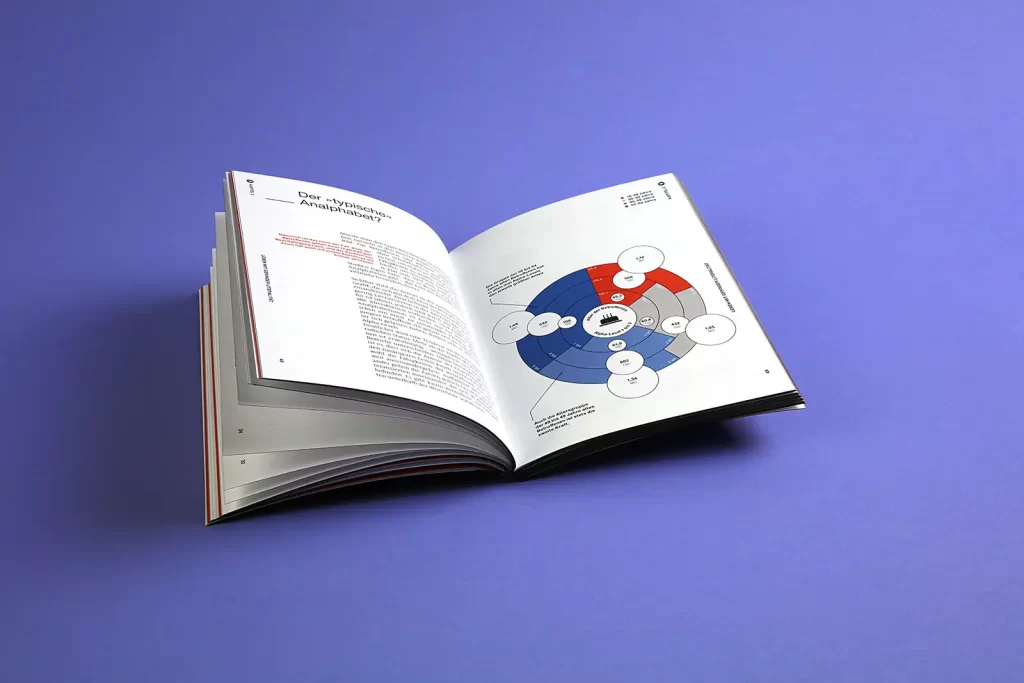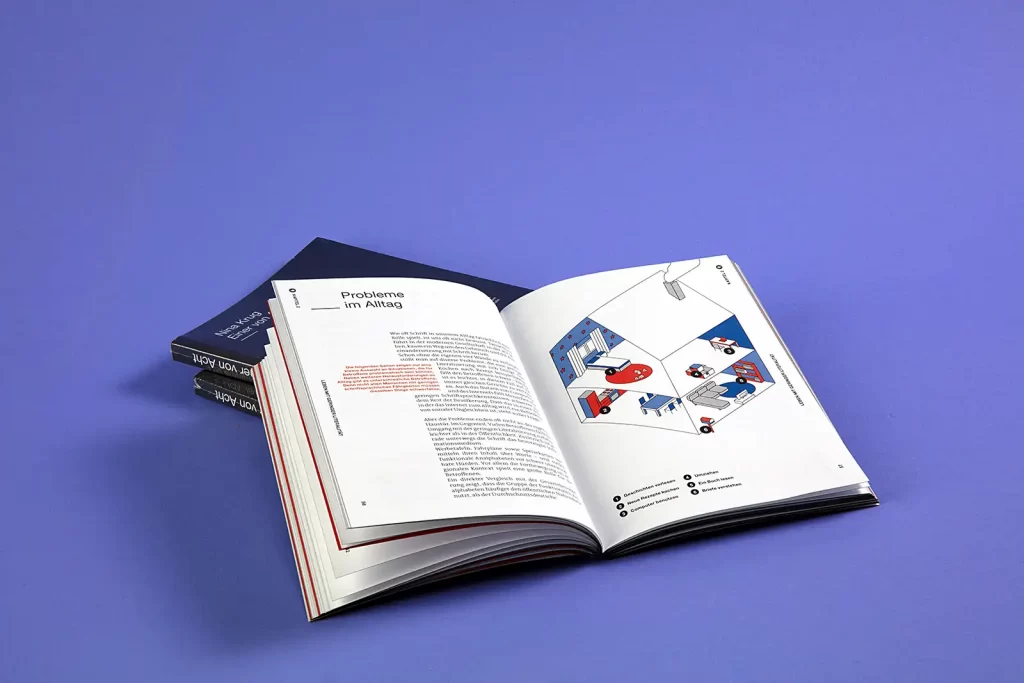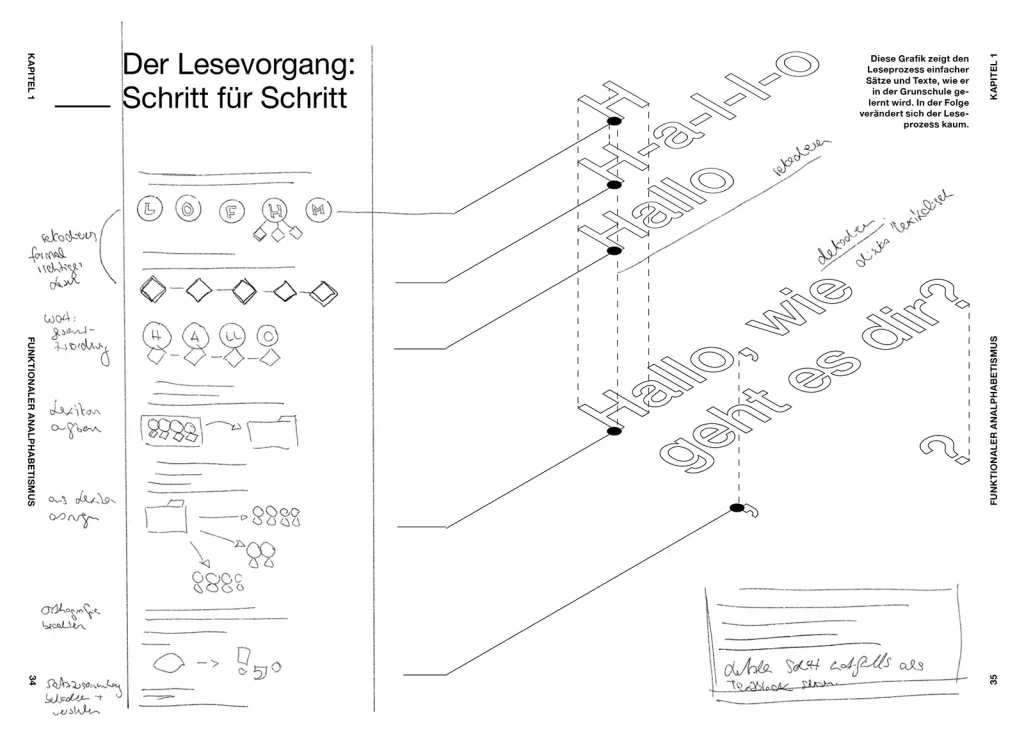Illiteracy has many facets. It ranges from cultural and psychosocial to educational deficits and can manifest itself in poor reading and writing skills or a complete lack of ability in the disciplines. In her bachelor's thesis, graphic designer Nina Krug looked at the challenges of functionally illiterate people who can read or write individual sentences, but not coherently.

What is functional illiteracy?
The starting point was an alarming figure: in Germany, one in eight people cannot read sufficiently. And so the work basically deals with participation in society: people with a lack of reading and writing skills often have difficulties participating in social life.
In order to break down the complex aspects of functional illiteracy and raise awareness of the extent of the problem, Nina Krug designed her book in two parts: A knowledge section explains facts and figures, while a narrative section allows readers to put themselves in the shoes of those affected: "From all the people in the world, it had to be clear to me. I don't know how or why it happened. And not even how - I don't have a clue. I just know that I'm different," it says to explain the so-called Alpha Level 3. This classifies people who can "read common words straight away and, with a few attempts, longer, compound words and sentences. However, they have difficulties with longer texts."


The consequences of a lack of written language skills
Infographics go into geographical observations, historical facts and astonishing correlations, for example with the global economy: "In 2012, global illiteracy caused a GDP loss of 1.3 trillion US dollars. This means that the impact of a lack of written language skills on GDP is greater than that of climate change."
Krug also investigates whether there are any trends: Can you recognize typical illiterates? She describes the prejudices they have to contend with, but also how creatively many deal with their deficits in order to compensate for them and not stand out. Finally, in a separate chapter, she looks at the reading behavior of functionally illiterate people: How are shapes of a letter identified? What do children with reading difficulties struggle with in particular? How does the "inner lexicon" work, which can be used to recall familiar word images?

Helping is not difficult
The work concludes with a self-test - and tips on how trusted individuals can provide support if those affected open up to them, for example by referring them to the anonymous ALFA telephone hotline. "Everyone can do their bit," writes Nina Krug in the conclusion. "Even if that just means no longer making fun of spelling mistakes. After all, it's not particularly difficult."
Click here for Nina Krug's portfolio
More about the work "One of eight"







